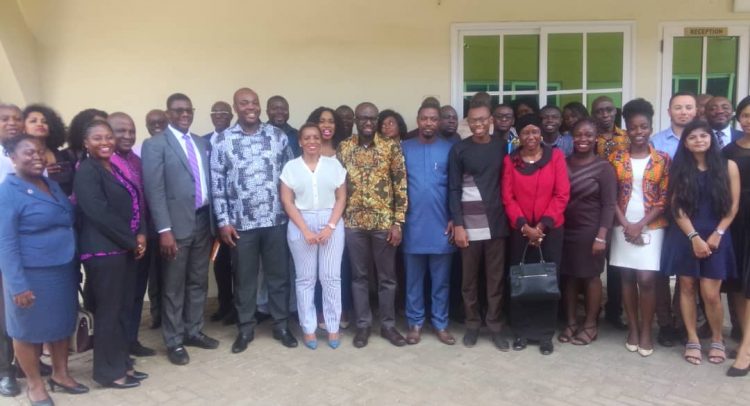A three-day validation meeting for the African Plan of Action for Youth Empowerment (APAYE) has begun in Accra.
The meeting with representatives from youth organizations and stakeholders across Africa, is being hosted by the National Youth Authority (NYA) and the African Union Commission.
It aims at gathering inputs on the APAYE adoption action plan which will replace the AU Decade Plan of Action for the Youth (2009) – (2018).
The instrument when validated will serve as a central document to galvanize youth development towards key targets on the continent during the period 2019-2023.
Chief Executive of the National Youth Authority, Emmanuel Sin-Nyet Asigri speaking at the opening ceremony emphasized that the review was necessary to make the document more receptive to current demands and needs of the youth taking into account Agenda’s that will streamline its activities.
He added “it is my candid expectation that the outcome of this exercise will contribute immensely to enriching a fit for purpose Africa Plan of Action for Youth Empowerment that will shape the future for the largest and very important group as far as the demographics of this continent is concerned”.
Minister for Youth and Sports, Isaac Asiamah, in his remarks noted that the youth population was an asset worth investing in.
However, he indicated the growth can be a “blessing” or a “curse” depending on how the youth is groomed.
Mr. Asiamah thus emphasized the need for the youth to be involved in any plan aimed at developing Africa as anticipated by Aspiration 6 of the Agenda 2063 of “An Africa whose Development is People-Driven, Relying on the Potential of Africa people, especially its Women and Youth.”
He further expressed joy over the concrete and significant steps being taken to expand the boundaries of Africa’s Youth Development Agenda and strengthen understanding through the validation of the Africa Plan of Action for the Youth Empowerment, which will enable policymakers within the African Union Member States in designing and implementing policies and programmes at the continental, regional and national levels.
He again encouraged all participants to take paramount interest in the purpose, objectives, strategies and guiding principles of the Africa Plan of Action for Youth Empowerment as well as the Theory of Change while awaiting a document that will serve as a reference point for AU Member States, policymakers and development partners.
By Nimako Nadia


